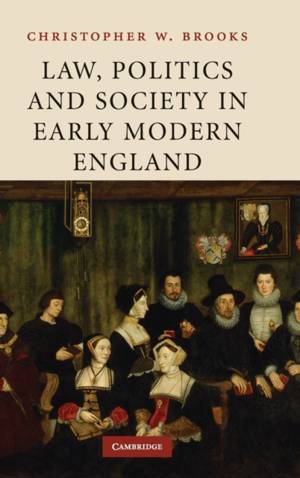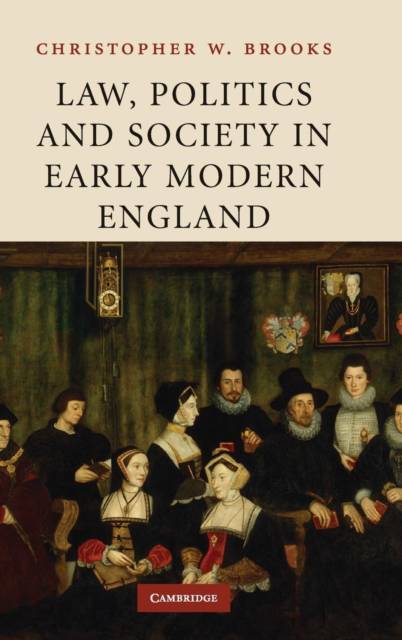
- Afhalen na 1 uur in een winkel met voorraad
- Gratis thuislevering in België vanaf € 30
- Ruim aanbod met 7 miljoen producten
- Afhalen na 1 uur in een winkel met voorraad
- Gratis thuislevering in België vanaf € 30
- Ruim aanbod met 7 miljoen producten
Zoeken
€ 167,45
+ 334 punten
Uitvoering
Omschrijving
Law, like religion, provided one of the principal discourses through which early-modern English people conceptualised the world in which they lived. Transcending traditional boundaries between social, legal and political history, this innovative and authoritative study examines the development of legal thought and practice from the later middle ages through to the outbreak of the English civil war, and explores the ways in which law mediated and constituted social and economic relationships within the household, the community, and the state at all levels. By arguing that English common law was essentially the creation of the wider community, it challenges many current assumptions and opens new perspectives about how early-modern society should be understood. Its magisterial scope and lucid exposition will make it essential reading for those interested in subjects ranging from high politics and constitutional theory to the history of the family, as well as the history of law.
Specificaties
Betrokkenen
- Auteur(s):
- Uitgeverij:
Inhoud
- Aantal bladzijden:
- 470
- Taal:
- Engels
Eigenschappen
- Productcode (EAN):
- 9780521323918
- Verschijningsdatum:
- 2/02/2009
- Uitvoering:
- Hardcover
- Formaat:
- Ongenaaid / garenloos gebonden
- Afmetingen:
- 157 mm x 229 mm
- Gewicht:
- 879 g

Alleen bij Standaard Boekhandel
+ 334 punten op je klantenkaart van Standaard Boekhandel
Beoordelingen
We publiceren alleen reviews die voldoen aan de voorwaarden voor reviews. Bekijk onze voorwaarden voor reviews.











